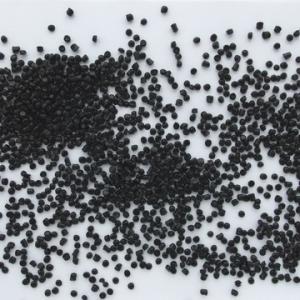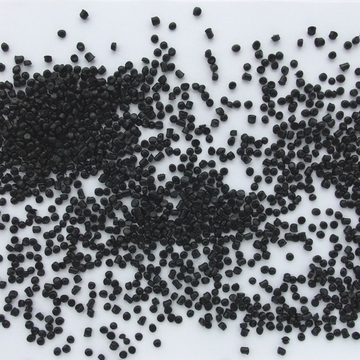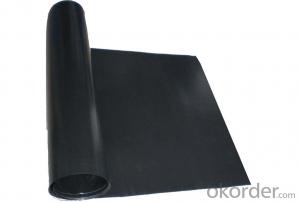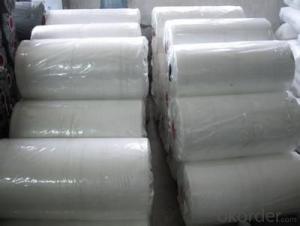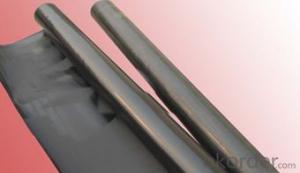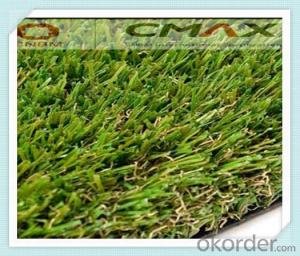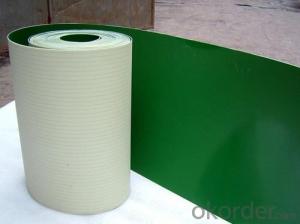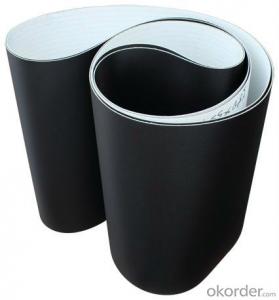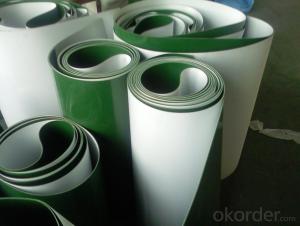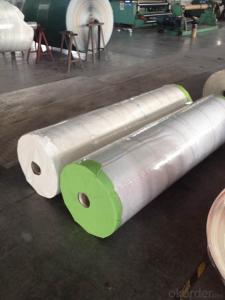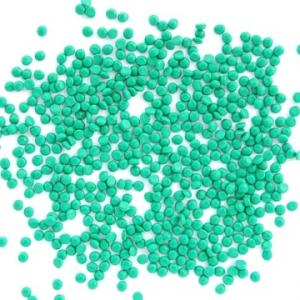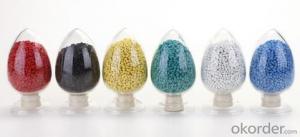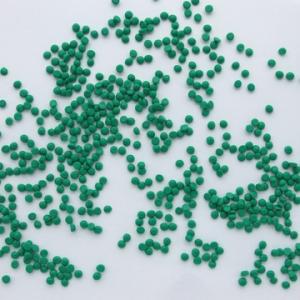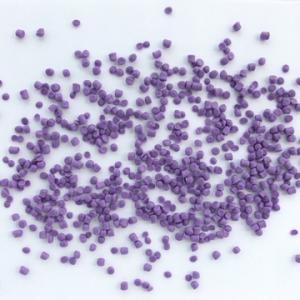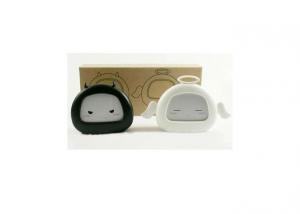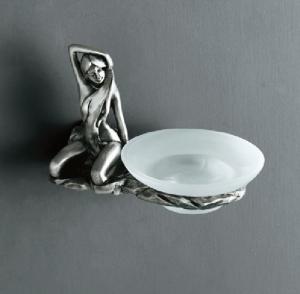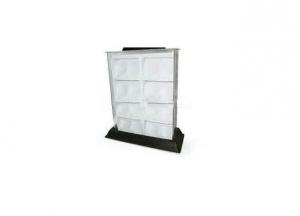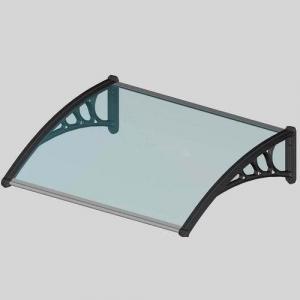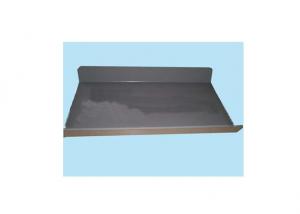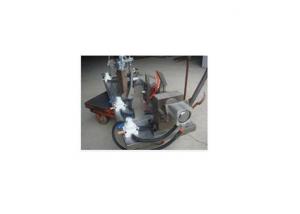High electrical property SR-PVC Jacketing compound for high voltage cables
- Loading Port:
- Shanghai
- Payment Terms:
- TT OR LC
- Min Order Qty:
- -
- Supply Capability:
- 3000 Tons kg/month
OKorder Service Pledge
OKorder Financial Service
You Might Also Like
High electrical property SR-PVC Jacketing compound
for high voltage cables
I. Type and application
Type | Product | Application |
9023N-J | 90℃flame retardant high electrical property SR-PVC jacketing compound | Applying to high voltage cables and other area cables as flame retardant jacketing compound |
9021N-J | 90℃high electrical property SR-PVC jacketing compound | Applying to high voltage cables and other area cables as jacketing compound |
II. Product description
Theseproducts are based on PVC resin, is made into granula by mixing, plastificationand granulation with adding plasticizer, stabilizing agent, flame retardant andetc.
III. Processing
It isrecommended that compound should be processed with common extruder having aminimum L/D ratio of 20.
Thefollowing temperature(℃) profile of extruder is recommended:
Zone | Zone 1 | Zone 2 | Zone 3 | Zone 4 | Head | Die |
temperature ℃ | 140 | 160 | 170 | 175 | 180 | 175 |
Note: Aboveinformation just for you refer, please adjust it according to equipmentconditions and extruding situation.
IV. Storage and transport
Packaging:25kg/bag,Aluminum foil or PE membrane inside bagand complex Kraft outside bag.
Storage andtransport: Avoiding in direct sunlight and weathering. The storage place shouldbe in clean, cool, dry, and ventilated conditions.
V. Properties
Table
Item | Unit | Standard Value | |
9023N-J | 9021N-J | ||
Density | ≤g/cm3 | 1.42 | 1.42 |
Hardness | Shore D | 45-55 | 45-55 |
Tensile Strength | ≥MPa | 20.0 | 16.0 |
Elongation at Break | ≥ % | 220 | 180 |
Thermal Aging | ℃×h | 100±2×240 | 100±2×240 |
Tensile Strength after aging | ≥MPa | 20.0 | 16.0 |
Variation on Tensile Strength | % | ±10 | ±20 |
Elongation at Break after aging | ≥ % | 220 | 180 |
Variation on Elongation at Break | % | ±15 | ±20 |
Loss of Mass | ≤g/m2 | 18 | 15 |
Oxygen Index | ≥ % | 30 | - |
Volume Resistivity, at 20℃ | Ω﹒m | 1.0×1012 | 1.0×1012 |
Hot Deformation | ≤ % | 20 | 20 |
Thermal Stability Time at 200℃ | ≥min | 150 | 80 |
Impact Brittleness in low temp. | ≤℃ | -15 | -15 |
Dielectric Strength | ≥MV/ m | 20 | 20 |
- Q: Can olive nets be used in hilly or uneven terrains?
- Yes, olive nets can be used in hilly or uneven terrains. Their flexible and adjustable design allows them to adapt to the contours of the land, ensuring effective coverage and protection for olive trees.
- Q: Can olive nets be used for olive tree pollination purposes?
- No, olive nets cannot be used for olive tree pollination purposes. Olive trees are wind-pollinated, meaning they rely on air currents to carry pollen between flowers. Using nets would hinder the natural pollination process and prevent the transfer of pollen.
- Q: Do olive nets require any specialized equipment for installation?
- Yes, olive nets do require specialized equipment for installation. Typically, they need poles, support structures, and anchoring systems to secure the nets properly and ensure effective coverage over the olive trees.
- Q: How can plastics be broken down into harmless substances?
- First of all, waste plastic packaging mixed in soil, affected crops absorb nutrients and moisture, will lead to crop failures; second, abandoned waste plastic packaging on land or in the water, animal as food ingestion, leading to animal death (in the zoo, pastoral areas and the sea, such a situation has It is often seen.); third waste plastic packaging, mixed with garbage in the landfill will be very difficult: long-term occupation of land, mixed with a plastic garbage is not suitable for composting, sorting out of waste plastic is also due to the quality assurance and difficult to recycle.
- Q: Can olive nets be used for other types of nuts?
- No, olive nets are specifically designed for harvesting olives and may not be suitable for other types of nuts due to variations in size, weight, and harvesting methods.
- Q: Can olive nets be used for other fruits or crops?
- No, olive nets are specifically designed for harvesting olives and may not be suitable for other fruits or crops due to differences in their size, shape, and harvesting methods.
- Q: What products are plastic extrusion?
- Extrusion is also called plastic extrusion in plastic processing. It is used to press out the extrusion of the die itself in the process of the non rubber extruder.
- Q: How do olive nets prevent fruit spoilage during storage?
- Olive nets prevent fruit spoilage during storage by providing a physical barrier that prevents external factors such as sunlight, insects, and birds from coming into contact with the olives. This protects the fruits from damage, contamination, and decay, ensuring their quality and freshness for a longer period of time.
- Q: How do olive nets help in reducing water evaporation from the soil?
- Olive nets help in reducing water evaporation from the soil by providing a physical barrier that covers the soil surface. This barrier prevents direct exposure of the soil to sunlight and wind, which are major factors contributing to water evaporation. By reducing the amount of sunlight and wind reaching the soil, olive nets help retain moisture, creating a more favorable and humid environment for the soil, thus minimizing water evaporation.
- Q: Can olive nets be used for olive tree sapling protection?
- Yes, olive nets can be used for olive tree sapling protection. Olive nets provide a physical barrier that helps protect the young saplings from pests, birds, and other potential threats.
Send your message to us
High electrical property SR-PVC Jacketing compound for high voltage cables
- Loading Port:
- Shanghai
- Payment Terms:
- TT OR LC
- Min Order Qty:
- -
- Supply Capability:
- 3000 Tons kg/month
OKorder Service Pledge
OKorder Financial Service
Similar products
Hot products
Hot Searches
Related keywords
